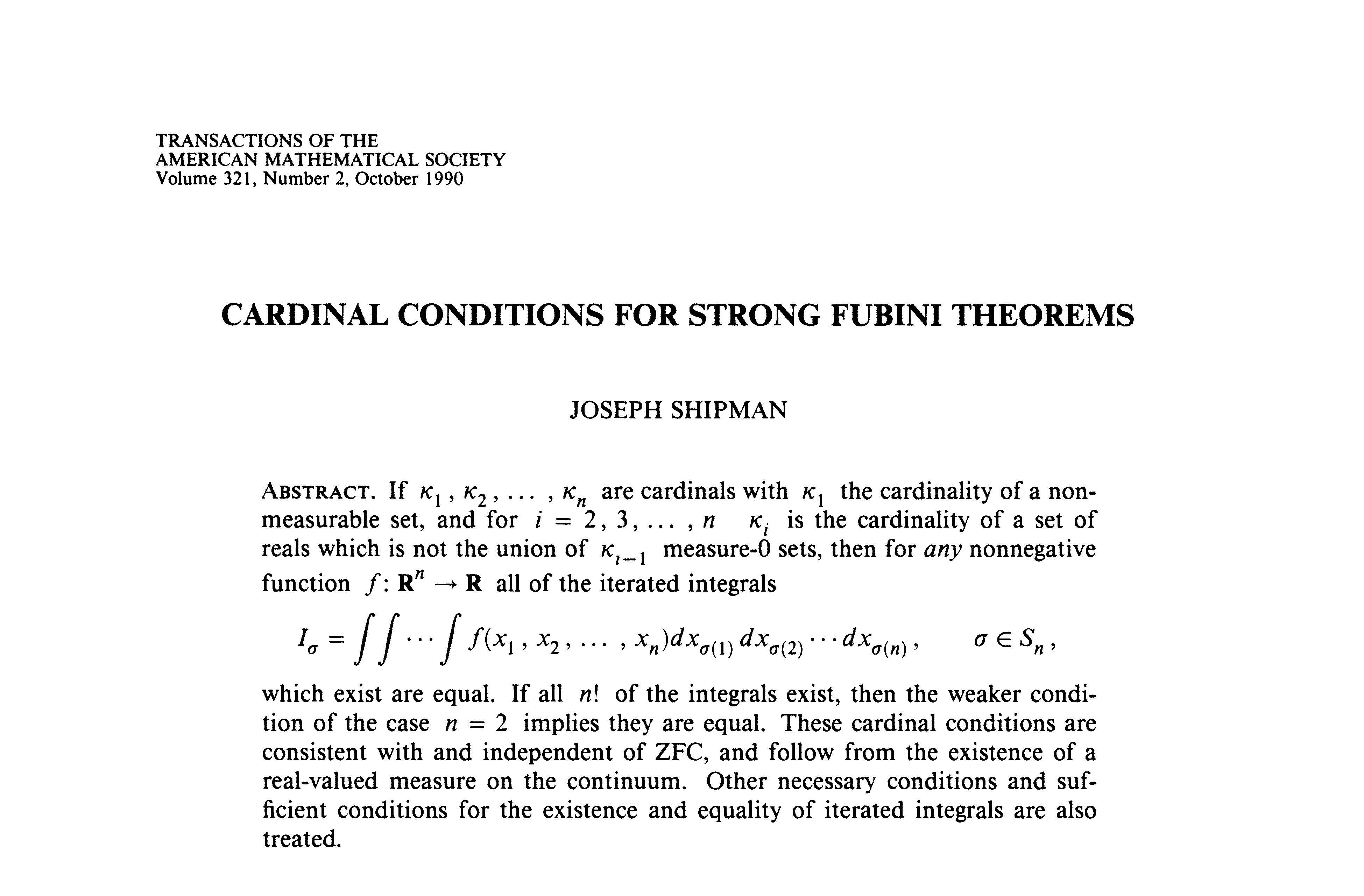In Real and Complex Analysis, Rudin gives an example (due to Sierpinski) of a function $f:[0,1]^2\to[0,1]$ separately Lebesgue-measurable in each argument, such that $$ \int_0^1 dx\int_0^1f(x,y)\,dy \neq \int_0^1 dy\int_0^1f(x,y)\,dx $$ (all integrals are w.r.t. the Lebesgue measure on $[0,1]$). The construction of $f$ requires the Continuum Hypothesis, and my question is: What happens if we negate CH? Does it then follow that all functions $f:[0,1]^2\to[0,1]$ separately Lebesgue-measurable in each argument satisfy the conclusion of Fubini's theorem?
-
5$\begingroup$ This paper by Friedman appears to show that a slightly weaker statement is consistent with ZFC: if both iterated integrals make sense then they are equal. $\endgroup$– Nate EldredgeCommented Jan 2, 2019 at 0:32
-
1$\begingroup$ Does this thing have anything to do with this?: jdh.hamkins.org/… $\endgroup$– Michael HardyCommented Jan 2, 2019 at 0:40
-
4$\begingroup$ Martins axiom (consistent with not-CH) will be enough to do Sierpinski's example. $\endgroup$– Gerald EdgarCommented Jan 2, 2019 at 1:45
1 Answer
See Cardinal Conditions for Strong Fubini Theorems, Joseph Shipman Transactions of the American Mathematical Society Vol. 321, No. 2 (Oct., 1990), pp. 465-481.
In general: Let $(X,A,μ)$ and $(Y,B,ν)$ be $σ$-finite measure spaces. The strong Fubini axiom ($SFA^∗$) asserts that whenever the iterated integrals for some $f:X×Y→[0,∞)$ are defined then they must be equal. It is known that for $X=Y=R$ and $μ=ν=$ Lebesgue measure, $CH$ implies not-$SFA^∗$ and the above paper shows that non(Lebesgue null)$<$Cov(Lebesgue null) implies $SFA^∗$.
You may also look at Strong Fubini axioms from measure extension axioms for extensions

